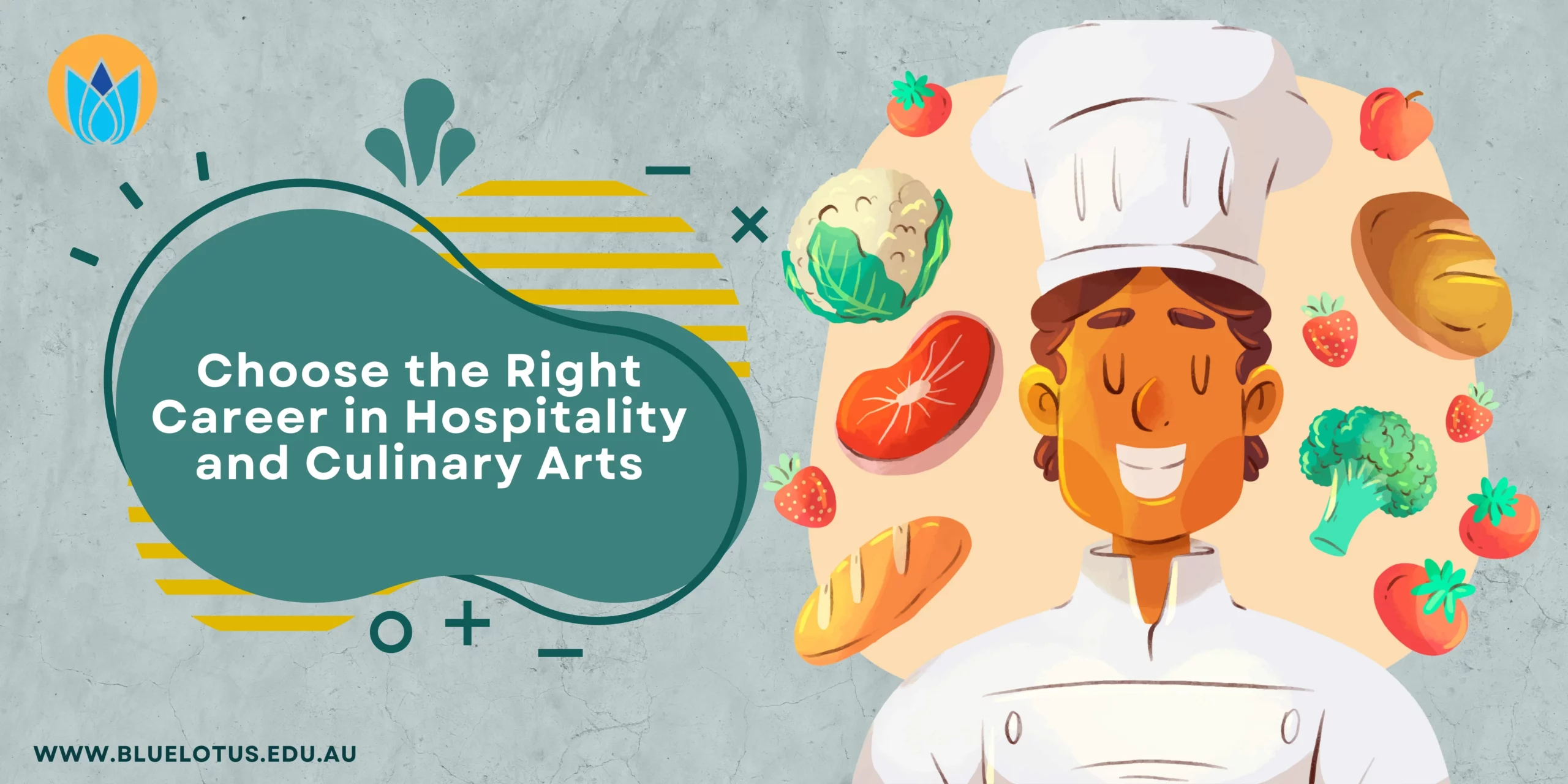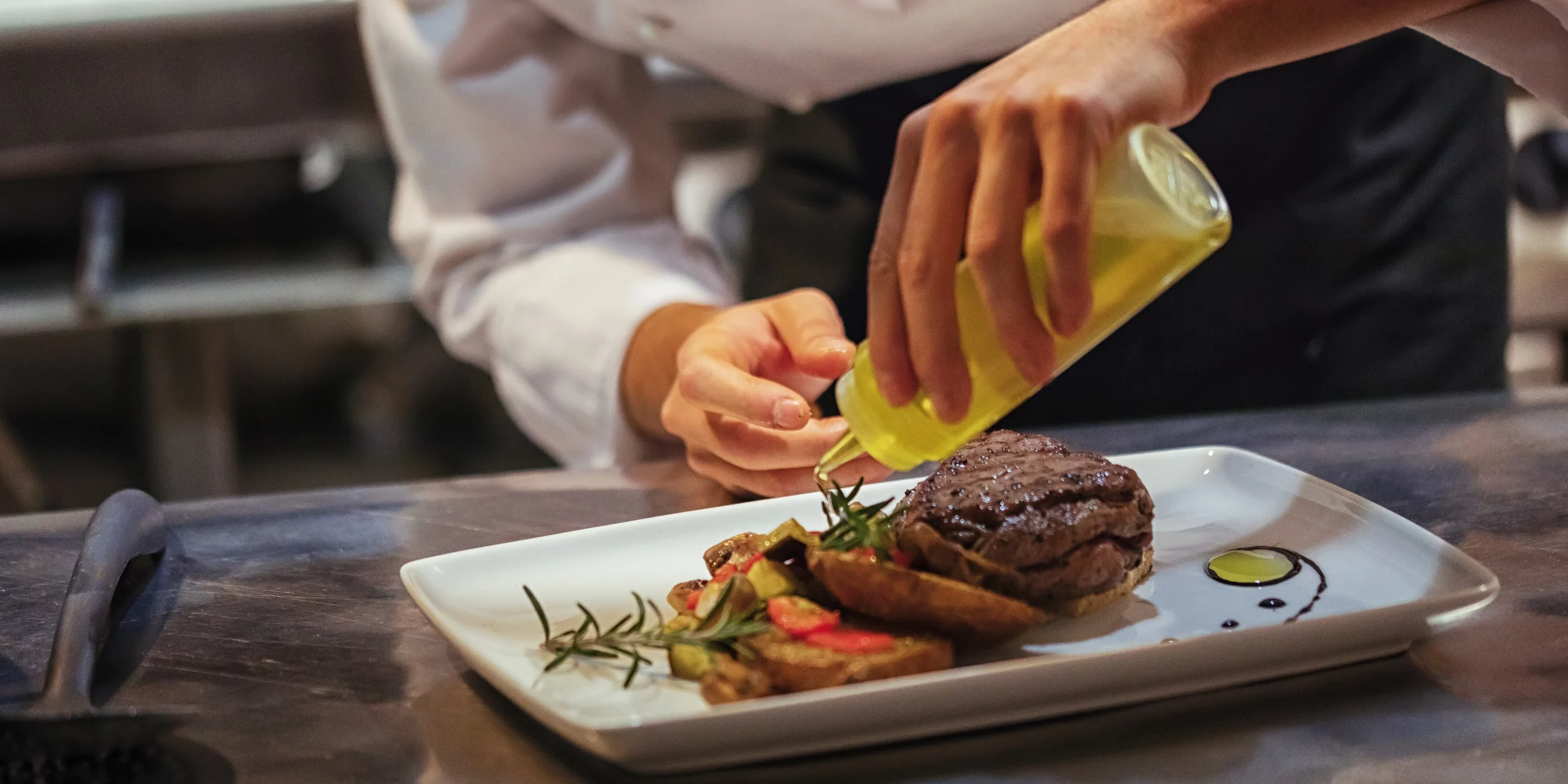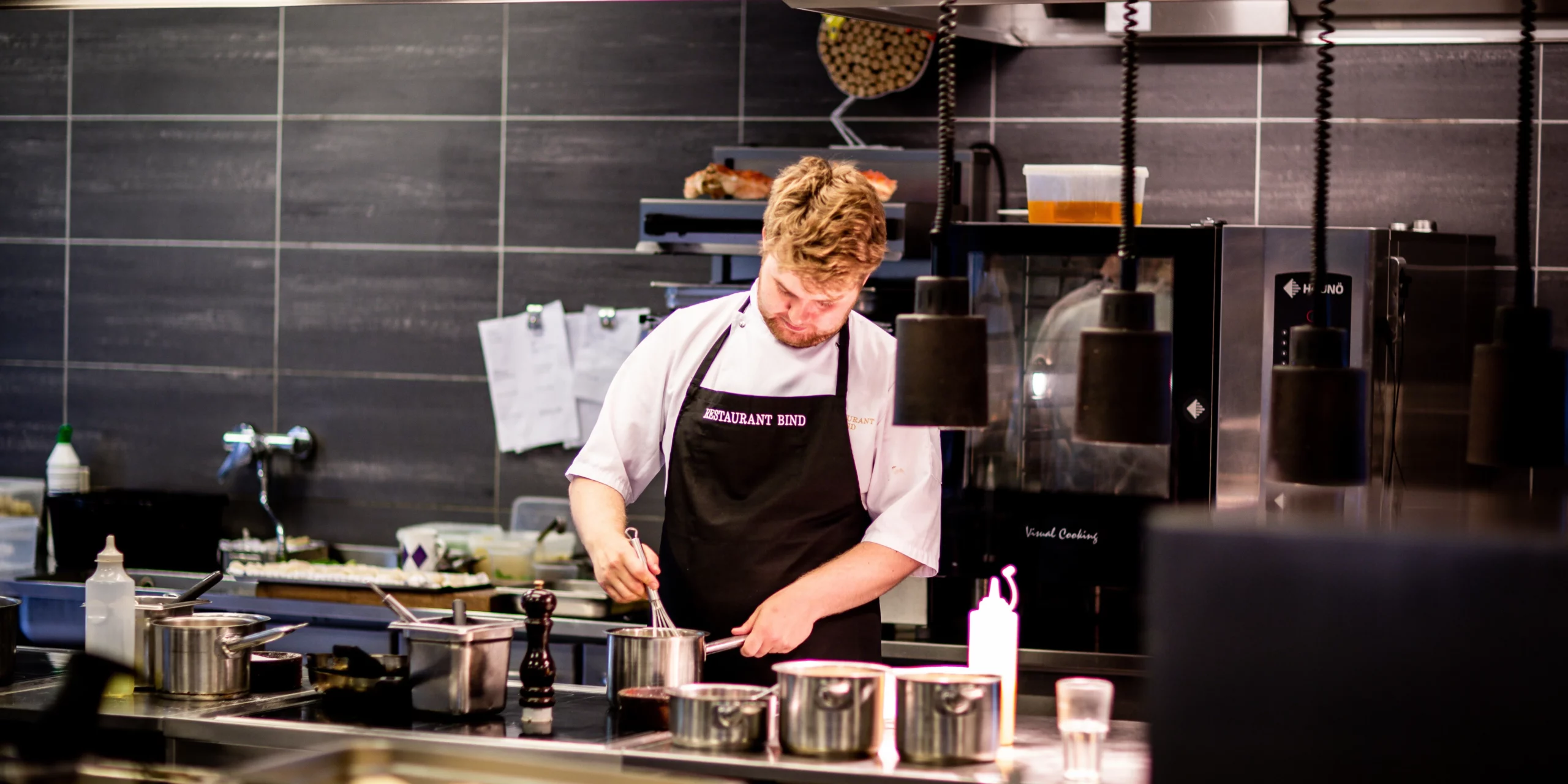- About Us
- Courses
- Students
- Forms
- Appeal and Complaint Form
- Application for Deferral, Suspension and Withdrawal
- Application for Leave Form
- Assessment Extension Form
- Course Variation Form
- Credit Transfer Application Form
- Enrolment Form (Existing Students)
- Pre-training Review Form
- Refund Application Form
- Student Application Form (New Application)
- Resources
- Our Agents
- News
- Contact Us

Get In Touch With Us
How to Choose Right Career in Hospitality and Culinary Arts in Australia
Table Of Contents
Toggle
Australia boasts a vibrant hospitality and culinary arts industry, offering a plethora of career opportunities for those passionate about food, service, and management. From bustling city restaurants to serene countryside resorts, the industry provides a dynamic and fulfilling work environment. This guide aims to help you navigate the diverse career paths available and make an informed decision about your future in hospitality and culinary arts.
How to Become a Chef in Australia: Steps and Requirements
Becoming a chef in Australia involves a blend of formal education, practical experience, and a passion for culinary creativity. Here are the steps to kickstart your journey:
- Educational Qualifications: Enroll in a culinary arts program at a recognized institution. Certificates III in Commercial Cookery and IV in Kitchen Management are popular choices.
- Apprenticeship: Gain hands-on experience through an apprenticeship program, which combines on-the-job training with classroom learning.
- Work Experience: Build your resume by working in various kitchen environments, from casual dining to fine dining establishments.
- Certification and Licensing: Obtain necessary certifications such as a Food Safety Supervisor certificate and meet any regional licensing requirements.
- Continuous Learning: Stay updated with industry trends and continue honing your skills through workshops and advanced courses.
For those seeking a reputable institution, consider applying to Blue Lotus College. Known for its comprehensive culinary programs and industry connections, Blue Lotus College offers the perfect foundation to launch your culinary career.

Understanding Kitchen Management: Roles and Responsibilities
Kitchen management is crucial for the smooth operation of any culinary establishment. Key roles and responsibilities include:
- Head Chef/Executive Chef: Oversees the kitchen operations, menu planning, and staff management.
- Sous Chef: Acts as the second-in-command, assisting the head chef and supervising kitchen staff.
- Kitchen Manager: Focuses on administrative tasks such as ordering supplies, managing budgets, and ensuring compliance with health and safety regulations.
- Pastry Chef: Specializes in baking and dessert preparation, often managing a team of pastry cooks.
- Line Cook: Executes specific tasks on the kitchen line, ensuring timely and quality food preparation.

The Importance of Studying Hospitality Management
Studying hospitality management equips you with the skills and knowledge necessary to excel in various roles within the industry. It covers areas such as customer service, business management, marketing, and human resources, preparing you for leadership positions.

Benefits of Studying Hospitality Management in Australia
Australia is renowned for its high-quality education and diverse hospitality sector. Key benefits of studying hospitality management in Australia include:
- World-Class Education: Australian institutions offer globally recognized programs with a focus on practical training and industry partnerships.
- Diverse Career Opportunities: The country’s thriving tourism and hospitality industry provides numerous job prospects across various sectors.
- Cultural Experience: Studying in Australia exposes you to a multicultural environment, enhancing your global perspective and interpersonal skills.
- Work Opportunities: Many programs offer internships and placements, allowing you to gain valuable work experience while studying.
Consider enrolling at Blue Lotus College, where you can benefit from a curriculum designed to meet industry standards and gain real-world experience through their extensive network of hospitality partners.

Career Paths in Hospitality Management
Hospitality management graduates can pursue various career paths, including:
- Hotel Management: Overseeing operations, managing staff, and ensuring guest satisfaction in hotels and resorts.
- Event Planning: Coordinating and managing events such as weddings, conferences, and corporate functions.
- Restaurant Management: Running a restaurant, including staff management, financial planning, and customer service.
- Tourism Management: Working with travel agencies, tour operators, and destination management companies to enhance the travel experience.
- Food and Beverage Management: Managing operations in restaurants, bars, and catering services.
Conclusion: Making an Informed Career Choice in Hospitality and Culinary Arts
Choosing a career in hospitality and culinary arts in Australia can be a rewarding decision. With the right education, practical experience, and a passion for the industry, you can build a successful and fulfilling career. Whether you aspire to be a top chef, a hotel manager, or an event planner, the opportunities are vast and varied. Take the time to explore your options, understand the requirements, and make an informed decision that aligns with your career aspirations and personal goals.
Embark on your journey in the hospitality and culinary arts today and be part of an industry that thrives on creativity, service, and excellence. Apply to Blue Lotus College to gain the education and experience needed to succeed in this dynamic field.
Upcoming Events
27
Jan.2025Australia Day
January 26 marks the anniversary of the arrival of the First Fleet in Australia. In 1994, it became a national public holiday.
10
Mar.2025Labour Day
Labour Day in Victoria is a public holiday that takes place on the second Monday in March. It’s a day to honor those who fought for better working conditions in Australia.
23
Mar.2025End of 1st Term
7
Apr.2025Start of 2nd Term
18
Apr.2025Good Friday
Public Holiday
19
Apr.2025Saturday before Easter Sunday
Public Holiday
20
Apr.2025Easter Sunday
Public Holiday
21
Apr.2025Easter Monday
Public Holiday
25
Apr.2025ANZAC Day
Public Holiday
9
Jun.2025King’s Birthday
Public Holiday
4
Nov.2025Melbourne Cup Day
Public Holiday
25
Dec.2025Christmas Day
Public Holiday
26
Dec.2025Boxing Day
Public Holiday
